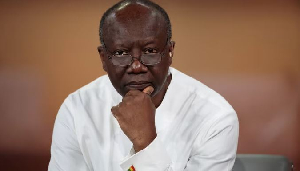ACCRA, Ghana -- Michaelle Jean told an African audience Tuesday that the continent must recognize its own role in the slave trade to help turn the page on a tragic chapter in human history.
At the same time, Canada's Governor General congratulated the Ghanaian government for offering such an apology, while urging other African nations to do the same.
Jean, a native of Haiti, made her remarks at a state dinner on the eve of her emotional pilgrimage to a seaside fortress where thousands of slaves were shipped to the Americas.
"The time has come to recapture that moment of African history in order to move ahead together," Jean said. "As it looks to the future, Ghana has shown that it is willing to confront the past.
"I am impressed by your government's decision to apologize for what was done hundreds of years ago by the people of this region involved in the slave trade."
More than 15 million men, women and children were captured and sold to Europeans during the colonial age and crammed onto wooden ships bound for the Americas.
Ghana was a major hub of the international slave trade concentrated in West Africa, and the national government has recognized the role Africans here played.
"As a descendent of slaves, that touched me very much. I know that we cannot go back and solve past injustices. All we can do is learn from the lessons of the past -- even the painful lessons -- and use that knowledge to build a better future."
Jean will visit Elmina Castle on Wednesday and step up to its so-called Door of No Return -- the infamous final spot where the captured natives were taken from African soil.
Jean said she planned to gaze at the ocean and reflect on what happened there.
"I will think of the millions of people packed tightly in rickety ships bound for unknown lands. Faraway lands where they were deprived of their memories, of their languages, of their heritage, of their dignity and, most of all, of their freedom," she said.
"I will stand and pray for those who never completed the journey and whose bodies were thrown out to the ocean.
"As I will stand there and reconnect with the land of my ancestors, I will salute your openness and I will accept your apology."
Ghana has recognized its role as part of an intitiative called Project Joseph, which invites blacks who trace their lineage to the slave trade to come and discover the land of their ancestors.
The program is named after the biblical figure who was sold by his brothers into bondage in Egypt. In the book of Genesis, Joseph forgives his siblings when he realizes their sincere regret over the betrayal.
Jean's reflections on slavery are an aberration from the generally hopeful message she has carried with her during a 24-day trip to five African countries.
She has drawn attention to accomplishments in a variety of areas including: peacekeeping, successful businesses that have been launched by community savings-and-loan institutions, a new skills-training centre, and how agriculture and health programs have helped save a disaster-plagued Malian village.
Most of those projects have benefited from the involvement of Canadians, either through government aid or the help of businesses or ordinary citizens.
Jean said earlier this week that she wants to prove to Canadians that the $1.5 billion spent annually by the federal government on aid to Africa does make a difference.












